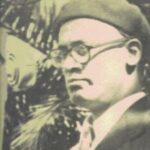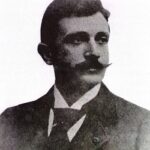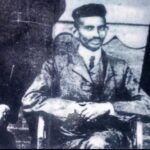OPOKU, FREFRE
- 4 Min Read
Opoku Frefre (Circa 1760-1826) was the talented Gyasehene (royal treasurer) of Asante for a quarter of a century, as well as a commander of some of the Asante forces in several major campaigns during the reign of the Asantehene Osei Bonsu, from 1800-1824.
Opoku Frefre was born in about 1760 at Anyatiase in the lake Bonsumtwi region of Asante. He came to Kumase during the reign of the Asantehene Osei Kwadwo [1764-1777], and served in the household of the Oyokohene (head of the branches of the Oyoko clan) in Kumase, named Buapon. His talents soon attracted the attention of the Asantehene, and when the Oyokohene died, he was placed under the protection of Eso Adu, the Gyasehene at that time. Opoku Frefre soon became a competent member of the Asante treasury staff, and when Eso Adu died, he succeeded him as Gyasehene.
As Gyasehene, he carried out the budgetary and financial policies of the Asantehene’s Council, and authorised expenditure, making payments in gold dust, the established currency of Asante. The gold dust was kept in the Adaka Kese, or Great Chest, which was housed in the royal palace in the Danponkese, or Great Big Room. The Gyasehene had the keys to the chest, and provided watchmen to guard it. Opoku Frefre headed the financial administration of Asante for a quarter of a century until his death in 1826.
He was also one of the senior counsellors of the Asantehene, and as such had a permanent seat in the Kumase council of chiefs. During the reign of Osei Bonsu, he was said to be one of the four captains composing the Privy Council, or Aristocracy, which checks the king. T. E. Bowdich, the British company representative who wrote an account of the 1817 British expedition to Asante noted that the Asantehene always consulted these four chiefs “on the creation or repeal of a law,” and that their interference in “foreign policy or in questions of war or tribute amount to a veto on the king’s decision”. One might infer from this statement that they had no other powers. Yet in the early 19th century these Kumase chiefs had other decision- making functions. Opoku Frefre, for example, is said to have held “a sort of exchequer court at his own house daily” to decide cases affecting “tribute or revenue and the appeal to the king is seldom resorted to”. Opoku Frefre was also a signatory of the Anglo-Asante Treaty of 1817.
Although the Asante government in the 19th century was becoming increasingly dependent upon functionaries possessing special expertise, yet as a group, such officials lacked any definable status in Asante constitutional law. Opoku Frefre and the other three chiefs did not belong to the old Asante aristocracy, and their office was not hereditary. Opoku Frefre himself brought the matter before Osei Bonsu, who then decreed that these officials should be succeeded by their sons. Thus it was Opoku Frefre who was responsible for the legitimisation of the mma mma stools (i.e. stools, representing positions of power, that were inherited by sons). The present occupant of the Gyasewa (royal treasury) stool of Asante is a descendant of Opoku Frefre.
As a member of the Asantehe’s inner council, Opoku Frefre also commanded an army in time of war, and was known as the Asantehene’s captain general, and as the chief general of the army. He was one of the army commanders who fought in the Asante-Fante war of 1806-1807, the Asante war with Gyaman in 1818-1819, as well as in the crushing of the rebellion of the Akyem Abuakwa and the the Akuwapem in 1811. He died fighting the British at the battle of Katamanso (Akantamasu) in 1826.
J.F. FYNN





